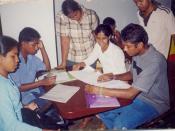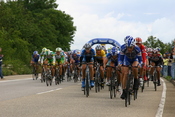Teams and teamwork are not new. There is much rhetoric on how to set up teams, while the process of teamwork has not been studied systematically. There is wider research on understanding teams at work that is dominated by a theoretical model approach, which considers the relationship between team inputs, processes and outputs.
There is substantial evidence and a growing body of research on the benefits for patient care and team members that can be gained from developing team working in mental health care. Despite such growing evidence there is very little to suggest that team development initiatives are being carried out in mental health settings. In order to develop team working in health care, it is important to do a full evaluation of the team and to identify its strengths and weaknesses(Bens, 1999).
Understanding how to create teams begins by understands that team processes vary according to the stage of their development and that their beginning requires particular consideration.
First is the forming stage, this is where team members gain self-awareness and seek acceptance from other members. They have a great need to adapt to the team or fit in at that point. They are enthusiastic and focused on role definition. During this honeymoon stage, members are excessively courteous and non-threatening despite feelings of anxiety. Team members note similarities and differences among themselves and form alliance and bonds. Members raise questions about the purpose of the team, available resources, time constraints, their roles and strengths and weaknesses of other members.
The second stage called storming is characterised by turbulence and stress, as members become more task oriented. Team resilience is tested as tensions build and trust becomes tenuous. Personality conflicts and hidden agendas also emerge. Goals are blurred and resolution depends on effective leadership. By providing clear direction and...


